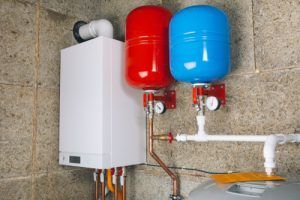Managing the Top Water Heater Crisis Situations
Call TodayHow do you actually feel in relation to Common Hot Water Heater Problems?

A water heater is one of the most essential basic appliances that can be discovered in a residence. With hot water heater, you don't need to undergo the stress of heating water manually each time there is a need to take a bath, wash, or the meals. Nevertheless, there is constantly an opportunity that your water heater would act up just like most mechanical devices.
It is essential to keep in mind any type of little malfunction and also tackle it promptly before things get out of hand. Most times, your water heater starts to malfunction when there is a build-up of debris as a result of continual usage. As a preventative measure, periodic flushing of your water heater is recommended to prevent sediment buildup as well as stop practical failing.
Common hot water heater emergencies and exactly how to deal with them
Insufficient warm water
It might be that the water heating system can not sustain the warm water need for your apartment or condo. You can update your water heater to one with a larger capacity.
Fluctuating water temperature level.
Your water heating unit can begin producing water of various temperature levels typically ice scalding or cool hot. There may be a demand to replace either the thermostat or the home heating unit of your water heating unit.
Leaking hot water heater container.
A dripping tank could be a sign of corrosion. It could cause damage to the floor, wall surface and electric gadgets around it. You can even go to danger of having your apartment swamped. In this situation, you need to shut off your hot water heater, enable it to cool off, as well as very carefully try to find the resource of the problem. At times, all you need to do is to tighten a couple of screws or pipeline connections in cases of small leakages. However if this does not work as well as the leakage continues, you could need to use the services of a specialist for an appropriate replacement.
Blemished or smelly water
When this happens, you require to understand if the issue is from the tank or the water source. If there is no funny odor when you run cool water, then you are particular that it is your water heating system that is malfunctioning. The odiferous water can be triggered by rust or the build-up of bacteria or sediments in the water heating system container.
Conclusion
Some house owners overlook little caution and also minor faults in their hot water heater system. This just results in additional damages and also a feasible full break down of your device. You should take care of your hot water heater faults as soon as they come near avoid more costs as well as unneeded emergency difficulties.
With water heating systems, you do not need to go through the tension of heating water by hand every time there is a requirement to take a bath, do the laundry, or the recipes. It may be that the water heater can not support the warm water demand for your house. Your water heating unit might begin generating water of different temperatures generally ice scalding or cold warm. If there is no amusing odor when you run cool water, then you are particular that it is your water heating unit that is damaged. The smelly water can be created by rust or the build-up of bacteria or sediments in the water heating system container.
Common Water Heater Issues and What You Should Do
What Type of Water Heater Do You Have?
Before we begin it’s first important that you identify the type of water heater you have on your property. There are two main types of water heaters out there: conventional and high efficiency.
Both of these types of products typically use either gas or electricity to heat power. There are also solar water heaters that use a thermal collector on the roof or yard to heat the water.
While these models are not as common, they can cut heating costs in half. In this article, we will focus on conventional and high efficiency.
How Do My Electric and Gas Water Heater Work?
Though they look similar, electric and gas water heaters work very differently. It’s important to know their basic function because often problems can be specific to the heating source.
In the electric model, a thermostat on the side of the machine detects the temperature of the water in the tank. When the temperature needs to rise electricity flows to a heating element suspended in the water.
Gas models also use a thermostat device — typically with a mercury sensor at the tip and an additional sensor called a thermocouple. The thermocouple detects whether the pilot light is on and controls the flow of gas.
When the thermostat drops below the appropriate level gas is released which becomes ignited by the pilot light. The flame heats the bottom of the water tank which causes hot water to rise and cold water to drop.
This natural circulation continues until the water reaches the desired temperature. Then, the thermostat triggers the gas control valve to shut off the flow of gas.
What Are the Most Common Issues and How Do You Fix Them?
https://happyhiller.com/blog/common-water-heater-issues-and-what-you-should-do/

As an enthusiastic reader on Warning Signs You Need Water Heater Repairs, I thought sharing that piece of content was beneficial. Don't hesitate to take a moment to share this blog entry if you liked it. Thank you so much for taking the time to read it.
Pro service? Ring!